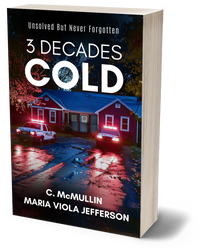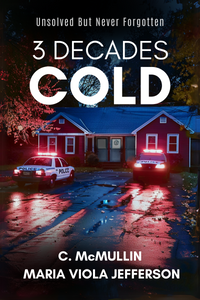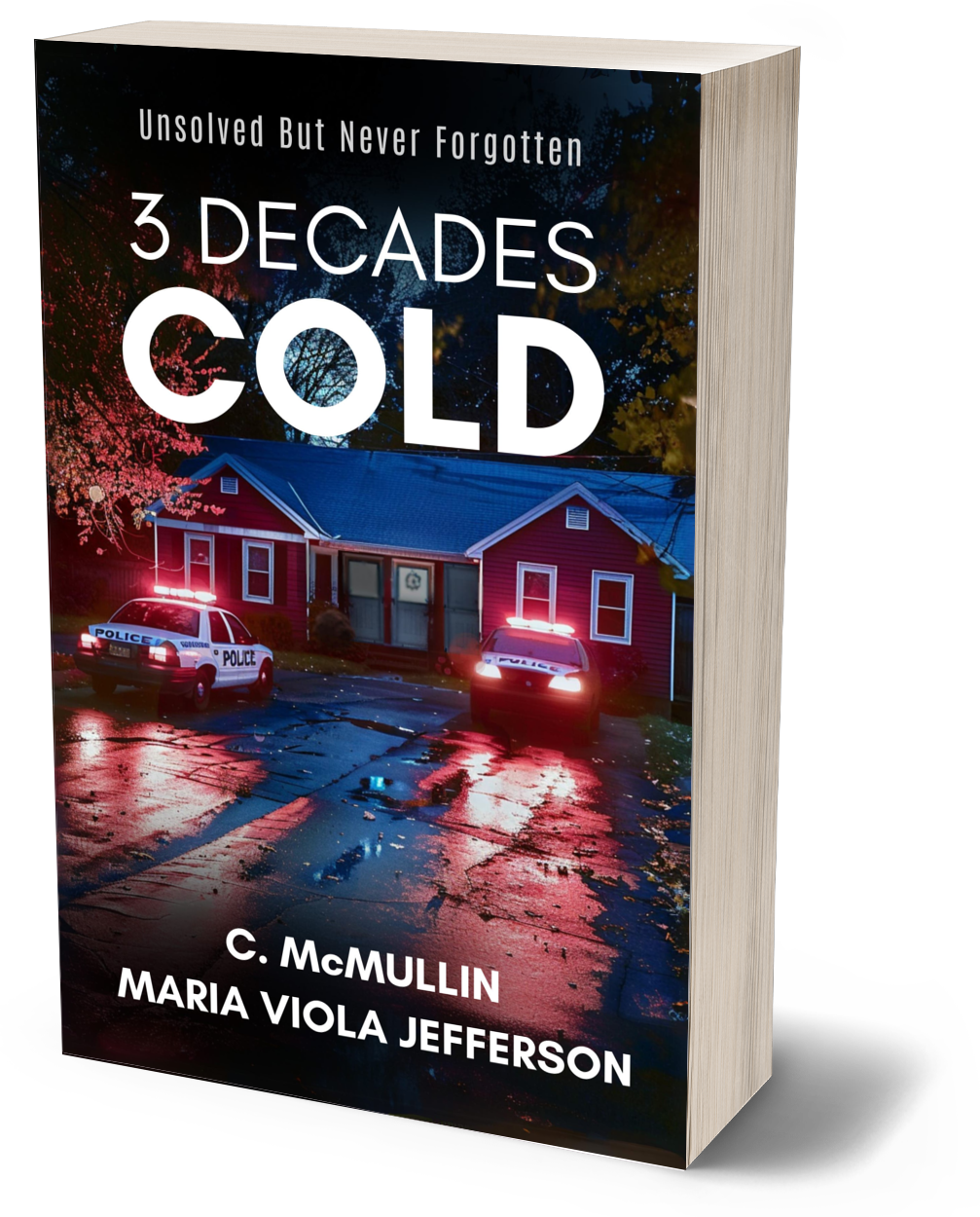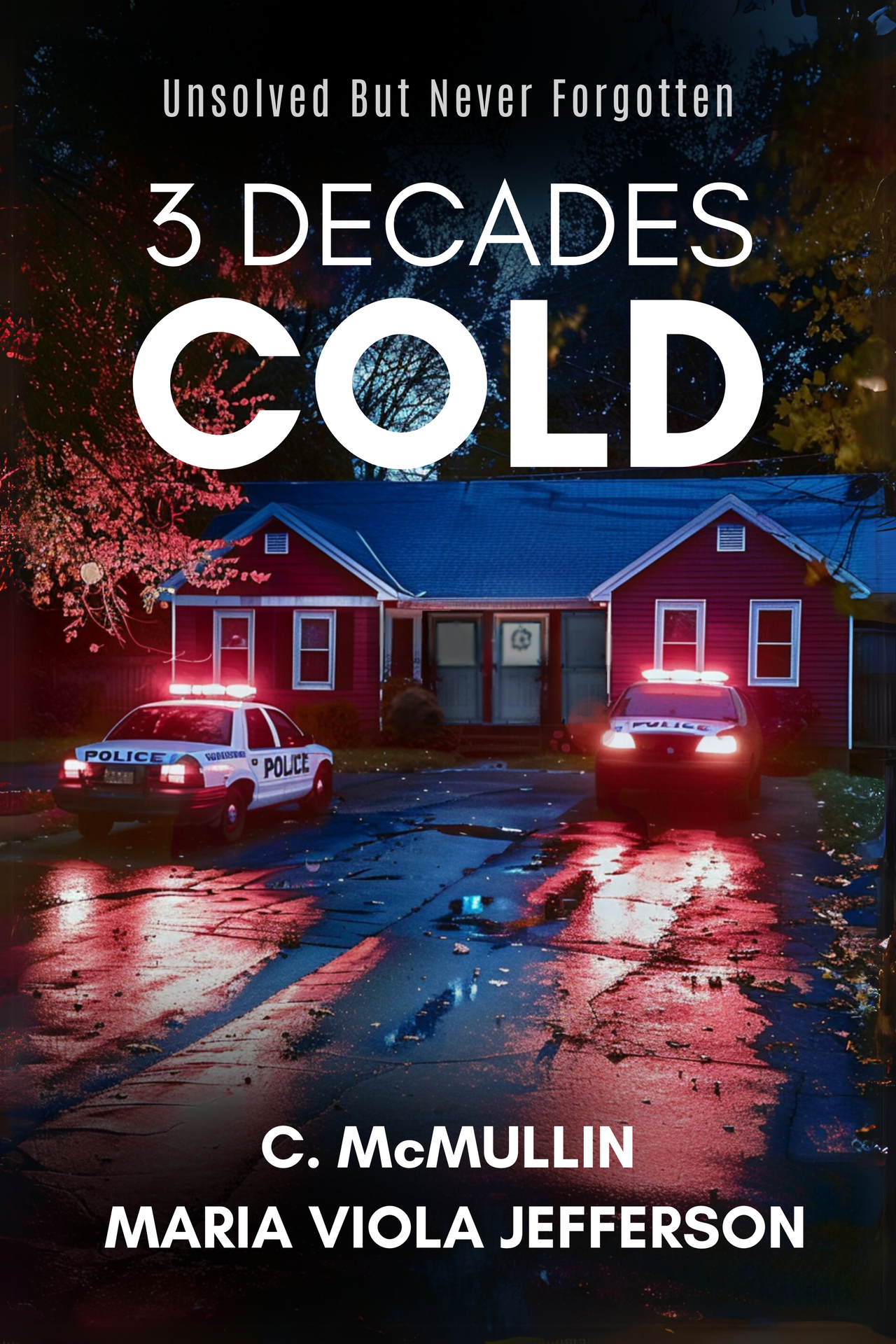3 Decades Cold (Paperback)
$16.95USD




<?xml version="1.0" encoding="utf-8"?>
<!DOCTYPE html PUBLIC "-//W3C//DTD XHTML 1.1//EN"
"http://www.w3.org/TR/xhtml11/DTD/xhtml11.dtd">
<html xmlns="http://www.w3.org/1999/xhtml">
<head>
<title>Untitled</title>
<meta http-equiv="content-type" content="text/html; charset=iso-8859-1"/>
<style>
/* ePub CSS */
h1 {padding-top: 15%;}
.indent {text-indent: 5%;}
.center {text-align: center;}
.right {text-align: right;}
.margin {margin: 0 5%;}
.margin-indent {margin: 0 5%; text-indent: 5%;}
.bigmargin {margin: 0 5% 0 10%;}
.bigmargin-indent {margin: 0 5% 0 10%; text-indent: 5%;}
.hugemargin {margin: 0 5% 0 15%;}
.hugemargin-indent {margin: 0 5% 0 15%; text-indent: 5%;}
img {max-width: 94%;}
body {margin: 0 3%; text-align: justify;}
.spacer {padding-bottom: 1em;}
</style>
</head>
<body>
<h1 class="center" id="c3">CHAPTER 1</h1>
<div class="spacer"></div>
<h2 class="center sigil_not_in_toc">The Early Years</h2>
<div class="spacer"></div>
<div>I graduated from the Philadelphia Police Academy in class 294 on March 25, 1991. My grandmother—“Nan,” as I liked to call her—threw a party for me at her home in the Mayfair section of Philadelphia. There was a big cake with my badge number, 4487. As I observed family, friends, and loved ones celebrating this turning point, I couldn’t help but reflect on what led me there.</div>
<div class="indent">Lexington Park, Philadelphia, is where I grew up with my parents. But some of my fondest memories are from Nan’s summer home. In the summer of 1977, I was a skinny seven-year-old kid. The Wildwoods were, and still are, known as one of the most popular places along the South Jersey shoreline. Nan’s place was right next door to the North Wildwood Police Department, and from the time I was about four years old, I would watch the police officers from our front porch. I loved spending summers at my Nan’s because it was much more fun than the neighborhood in Philly. You can always enjoy five miles of beach and boardwalk rides, arcades, and shops.</div>
<div class="indent">On a typical hot and humid summer day at the Jersey Shore, I was riding my bike in front of Nan’s house when I fell. Two officers saw me and got out of their patrol car to help. They recognized me as the kid who lived in the house next to the police station. From that day forward, the same two officers always waved at me when they passed by. They were genuinely good guys. I remember seeing their cruiser up close with the door open, and hearing the crackle of the police radio amazed me. Day in and day out, summer after summer, I watched the officers of the North Wildwood Police Department protect and serve their community.</div>
<div class="indent">Fast forward ten years later to May 7, 1987, the day of my junior prom. My beautiful daughter, Caitlin, was born. Needless to say, I didn’t go to the dance. I was seventeen and in eleventh grade, so I had another year until graduation. I attended Catholic school, and some priests broke my balls over being a teen parent. They had to play the role, after all. They felt they were doing the right thing. We named our daughter after Caitlin Davies from the popular 1980s television series <i>Miami Vice</i>. Actress and singer Sheena Easton played this role of Sonny Crockett’s wife on the show.</div>
<div class="indent">Caitlin’s mom, “Marie,” and I met through mutual friends in the spring of 1986. I’ve decided to use a false name in this bio for her and her family’s privacy. I was sixteen years old. My parents were divorced, and I lived with my father in Northeast Philadelphia. For the record, I didn’t choose my father over my mom; I didn’t want to leave home. My father refused to leave our house in Northeast Philly for years. Because of this, my mother had no choice but to move out.</div>
<div class="indent">One summer night, when I was eleven or twelve years old, my parents and I were driving to the shore in my dad’s ‘76 Cadillac Coupe Deville. I fell asleep in the backseat because it was late and dark. When I woke up, my parents were arguing but trying to keep it down so they wouldn’t wake me. They could have been more successful. I didn’t sit up; I just lay there pretending to be asleep in the back seat. I was afraid if I sat up, I’d get yelled at. I could feel the tenacity and anger in my mom’s voice as they went back and forth at each other; she was practically spitting venom at him. My father was driving and didn’t say as much, but he clearly was disgusted as it radiated through his voice when he responded. Have you ever heard two people try to argue quietly? It doesn’t work. That was the first time I heard the song “Hearts” by Marty Balin, and now, any time I hear it, it reminds me of that night in my dad’s car—it has stuck with me forever.</div>
<div class="indent">When Marie and I got together, she lived in the nearby Mayfair section, and her parents had split up by then too. It was my first real relationship. When she got pregnant, our lives changed forever. I remember she had a pregnancy test done at the local free clinic, and, as it turned out, she was nineteen weeks along. It was clear she had been holding out on me. I panicked initially; I knew I had to tell my parents.</div>
<div class="indent">Thanksgiving Eve 1986, we told my father about the pregnancy—he was the first to know. He was disgusted with us and called my mom first, then Marie’s parents. Everyone gathered at my father’s house, and our mothers were very emotional; they both cried and fell apart. Our fathers were even-tempered yet heavy-handed. They laid down the law and told us we would put the baby up for adoption. They didn’t ask or suggest; they just told us. I disagreed with the “plans,” but we were too afraid to speak up against them. We were kids; we couldn’t provide for a baby and hadn’t even graduated high school. I only agreed to the adoption to get them off our backs. I told Marie to play along with them, and she did. Workers from the adoption agency visited us every week, but we never met the people who planned to adopt Caitlin.</div>
<div class="indent">Nan was the only person I could talk to in our family. She knew I didn’t want to give up the baby, but I was scared. I didn’t know how we would take care of a baby. Where would we live? How could I pay the bills? I’ll never forget the day my Nan turned to look at me and said sternly, “We will pay the bills. Don’t let that be a reason to give up the baby.” I had no intention of going through with the adoption, but I dreaded facing our fathers over it.</div>
<div class="indent">Each of our mothers showed up at the hospital the day Marie went into labor, but our fathers were absent. We were at the hospital all night as she gave birth to a beautiful baby girl, Caitlin. Our decision to keep the baby caused a huge wedge between my dad and me. Eventually, I moved out to live with Nan in the neighboring Mayfair section of Philadelphia. Caitlin stayed with her mother, who lived just two blocks from Nan’s house.</div>
<div class="indent">I <i>attended</i> Father Judge Catholic High School in Northeast Philadelphia. I emphasize “attended” because I didn’t learn a thing there, except how to talk my way out of detention, aka JUG—“Justice Under God.” I was a terrible student and went to summer school two out of my four years there. The nuns at St. Hubert’s High School wouldn’t let Marie attend school once she started showing. But after Caitlin was born, she returned to school and graduated on time.</div>
<div class="indent">Father Kilty, academic dean, and my English teacher was very good to me while the other priests looked down on me. He was the kind of guy who would sit me down with a cigarette in his mouth and have casual heart-to-heart talks. Occasionally I’d bum a smoke off him too.</div>
<div class="indent">He also baptized Caitlin. That day played out interestingly with my dysfunctional family. Imagine: My mother and Nan weren’t talking to my father. My father and his girlfriend sat on the other side of the church. On top of that, Marie’s parents were separated and didn’t want to sit next to one another. It was so awkward that at one point, Father Kilty announced, “Let’s remember Caitlin is here for a purpose.”</div>
<div>Twenty years later, Caitlin was attending nursing school while Nan was dying. Caitlin jumped in and took fantastic care of Nan. My mother and I would never have been able to go through it without Caitlin. Father Kilty’s declaration ultimately rang true.</div>
<div class="indent">Father Kilty was different from the other priests—he never lectured or shamed me in any way. He didn’t speak down to me as an adolescent. Instead, he was honest with me. I always knew where I stood with him and never left the room confused. When I learned I would be a father, I sat down with him and said, “I fucked up.” And he replied, “Yeah, you did fuck up. But you fucked up once, and you could’ve fucked up twice by getting an abortion, and you didn’t.” I felt like a man in his presence, not an irresponsible teenager who got a girl pregnant.</div>
<div class="indent">Father Kilty would tell me stories about my great-uncle, who was in the priesthood. Monsignor Joseph McMullin died when I was four years old. I have no memory of him, but he did baptize me. He taught at Saint Charles Borromeo Seminary in Wynnewood, Pennsylvania, just outside Philadelphia.</div>
<div class="indent">Monsignor McMullin, or “Holy Joe The Hammer,” as they called him, spoke thirteen languages. Father Kilty was one of his students at the seminary before he was ordained. I understood the nickname “Holy Joe,” but I asked Father Kilty why they called him “The Hammer.” Kilty laughed and said my great-uncle enjoyed telling jokes and was known for knocking a firm elbow into the recipient’s arm and saying, “Did you get it, did you get it, did you get it?” Hence, “The Hammer.” Years later, Father Kilty transferred to a different school, and we eventually lost touch. However, he left a lifelong impression on me, and I will always be grateful for the time we spent getting to know each other.</div>
<div class="indent">When I graduated high school, I knew I wanted to become a police officer. All those years sitting on the front porch in North Wildwood lit a fire in me, and I no longer wanted to watch the cops; I wanted to be one. My father and I were now on good terms, although he didn’t like where I was in life. Nan still had her summer house in North Wildwood and her primary home in Mayfair. I was able to live with her while going to college part-time. I worked at the Friendship Pharmacy and Spitzer’s Mobil Station. I also mowed lawns to help support Caitlin financially.</div>
<div class="indent">In the summer of 1989, I interviewed for a seasonal dispatcher position at the North Wildwood Police Department (NWPD) with Captain Gary Sloan. He was in his forties and stood about six feet tall. He had a calm demeanor about him. During the interview, he questioned why I wanted to be in law enforcement, and I replied, “I want to help people.” Captain Sloan then asked, “Do you have any relatives in law enforcement?” I answered, “None that I’ve ever met.” Nan had told me about relatives I never knew in New York City who were on the job. She once mentioned that I had a great uncle, Mickey Finnigan, who was in the NYPD and walked a beat in Harlem.</div>
<div class="indent">“Are you ready to work for the North Wildwood Police Department?” asked Captain Sloan. I smiled and said, “Yes, I am.” Captain Sloan emphasized the importance of getting to know the town’s citizens and, in his words, stated, “Do little things, too… like helping little kids up when they fall off their bikes.” He smiled, then told me I had the job. If you haven’t caught on yet, he was one of the police officers who helped me when I fell off my bike in 1977. He remembered me, and I began working as a seasonal dispatcher for the NWPD.</div>
<div class="indent">The second officer who helped me when I fell off my bike that day was Anthony J. Sittineri. He had since become the chief of police. He was an old-school street cop described by other cops as “a cop’s cop.” One evening, I was working in dispatch and received a call from Chief Sittineri’s youngest daughter, Sharon. Her older sister had just given birth to her first child. Sharon asked if I could announce over the police radio that Chief Sittineri had just become a grandfather.</div>
<div class="indent">I was the new guy and hadn’t been working there long. I didn’t know if I should make a broadcast over the police radio about the chief’s family, but on the flip side, I didn’t want to refuse a request from the chief’s daughter, so I told her I would do it. I figured he would either be pleased or fire me. I keyed up the mic and said, “Two to 200.” (NWPD was District Two, and the chief’s call sign was 200). He responded, “200.” As you may have guessed from the name Sittineri, he was Italian and had that old-school Italian way about him that I loved. I replied, “Your youngest daughter called; congratulations, you’re a grandfather.” He didn’t acknowledge the announcement immediately, and I got scared, thinking he would fire me or have me whacked out. After a few seconds, he finally replied with a typical “Ten-four.”</div>
<div class="indent">A few minutes later, Lieutenant Jake Stevenson walked into HQ, and I again thought I was toast. Instead, he approached the dispatch window and commented, “That’s great!” As it turned out, he, and more importantly, the chief, was happy I had broadcast the news.</div>
<div class="indent">One year later, I began working as a part-time police officer for the NWPD. May 14, 1990 marked the day I started training at the Cape May County Police Academy as a North Wildwood Class II Officer cadet. Being a cadet was a whole new ball game compared to working as a dispatcher. I had no idea what I was in for. It was grueling, military-style training, six days a week for seven weeks. The course was not as long as full-time police officer academies, but it was strict with a military atmosphere.</div>
<div class="indent">We were required to have crew cuts, be clean-shaven, and wear khaki uniforms. We marched and got yelled at by the drill instructors constantly. I laugh about it now but was not too fond of it back then; actually, I hated it.</div>
<div class="indent">Day one at the academy started with seventy-two cadets from all over the tri-state area assembled as the 5th Special Class. Only forty-two of us made it to graduation day. Thirty cadets washed out for a variety of reasons. Some couldn’t handle the physical training. I recall one guy who failed the drug screening. Some couldn’t qualify with their firearms. The rest quit.</div>
<div class="indent">The physical training was demanding. The instructors pushed and ran us until we fell or puked, sometimes both. I was never a star athlete but managed to hang in there. I refused to give up and forced myself to suck it up. If you’ve ever watched the movie <i>An Officer and a Gentleman</i>, I adopted the dialogue and mentality portrayed by Richard Gere’s character, Zack Mayo: “You can kick me out, but I ain’t quitting!”</div>
<div class="indent">During our workouts, we wore white T-shirts with our last names in black lettering on the front and dark blue sweatpants with our last names in white lettering on our asses. That way, no matter which direction we were facing, the drill instructors could yell at us by name, and they did so constantly.</div>
<div class="indent">In the gym, we had a formation to abide by, and we each had a designated spot to stand in. At any given time, a drill instructor would yell out your name, and you would have to respond loud and clear, “Yes, sir!” If he ordered you to “take the stand,” then you would run like hell to the front of the class. Then he would say, “McMullin, lead the class in squat thrust exercises.” The proper way to do this would be to address the class loudly and say, “Class, squat thrust exercises, starting positions… move! Ready… by the numbers… exercise! One-two-three, ONE! One-two-three, TWO! One-two-three, THREE!” and so on. If whoever was on the stand did not give the exercise order using those exact words, the instructors would punish the rest of the class with additional exercises, which sucked! I was in excellent physical condition by the time we graduated—I wish I were in such good shape now.</div>
<div class="indent">When the time came to go to the shooting range, I was nervous. I had never fired a handgun in my life. My father had taught me how to shoot shotguns and rifles before, but handguns were a new experience. By the grace of God, I shot well enough to score a passing grade.</div>
<div class="indent">Later that September, I was hired by the Philadelphia Police Department. One good thing about the intensity of the Cape May County Academy was that it prepared me for the Philadelphia Police Academy. Since my new job would be in a different state, I had to attend their academy before I could work there.</div>
<div class="indent">I began my training at the Philadelphia Police Academy in October. Although Philly was hard, it was not nearly as grueling as Cape May. The stressful environment they created at the Cape May County Academy was so much harsher. Drill instructors constantly scrutinized and yelled at the cadets to try to break us down. They were shaping us into rugged individuals, mentally and physically.</div>
<div class="indent">The day after I graduated from the Philadelphia Police Academy, I bought a house in the Holmesburg neighborhood of Philadelphia. I moved Caitlin and her mother in with me. Marie wanted to get married even though we weren’t getting along. Our parents knew we didn’t belong together, but, despite their opposition, we got married at a courthouse. It was for all the wrong reasons—mainly so Marie could have medical coverage under my health benefits. She had recently sustained a life-threatening asthma attack that had put her in the hospital for ten days, and I wanted to provide her with the best medical care possible.</div>
<div class="indent">The marriage lasted less than a year. Marie later met another guy, who she married and settled down with. They’re still together, and I’m happy for them.</div>
<div class="indent">During the graduation party Nan threw for me, I found my mother on the second floor of Nan’s house, crying. She was afraid something terrible would happen to me as a police officer. At first, I didn’t understand. But I soon realized that my two summers as a seasonal cop in North Wildwood didn’t concern her nearly as much as me working in Philadelphia. She grew up in the Bronx, New York, and my dad is from Philadelphia. When they were engaged, my dad got accepted into the NYPD and made plans to move to NYC. But my mother didn’t want him to be a cop, so they moved to Philly instead, and my dad kept his job as a machinist at the Philadelphia Navy Yard.</div>
<div class="indent">So there I was, doing exactly what she had kept my father from doing, which devastated her. From that point on, I understood why it bothered her so much. I could only assure her I would be safe, and I’ve kept that promise so far.</div>
<div class="spacer"></div>
<div class="spacer"></div>
</body>
</html>

